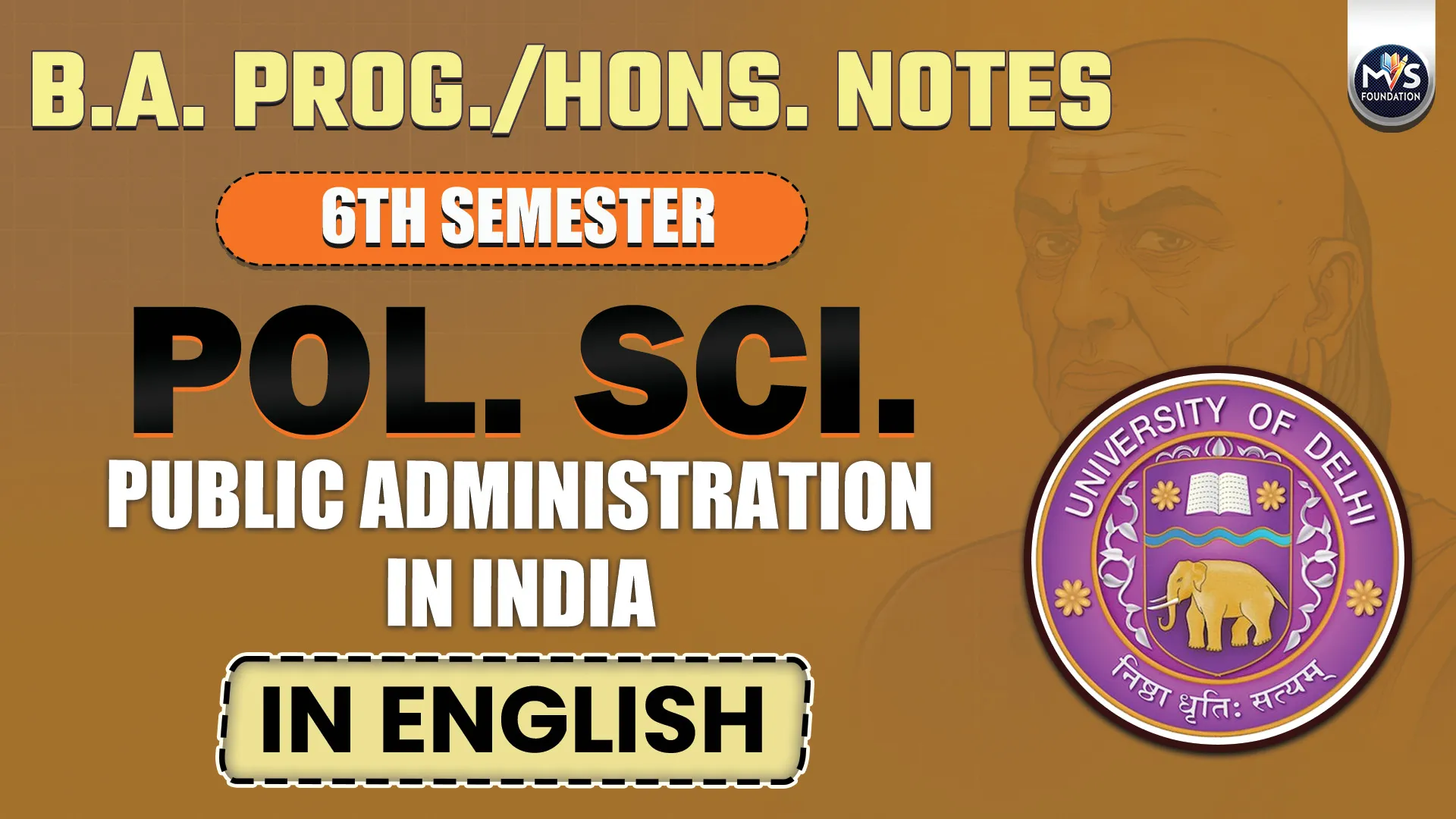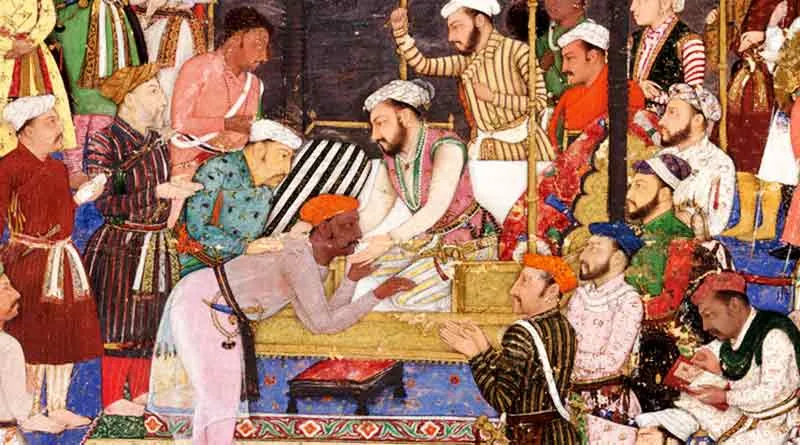
Get in Touch
We will get back to you within 24 hours.
Welcome to MVS Blog

Q. 1 Write the historical development of civil service system in India. Explain the changing nature of its constitutional framework in independent India.
Answer.
Introduction
The history of the Indian Civil Service (ICS) is intertwined with the colonial rule of the British in India. ICS was established during the British Raj. Lord Cornwallis is known as the "Father of Civil Services" in British India. The Indian Civil Service (ICS) played a significant role in the British colonial rule and thereafter evolved into the Indian Administrative Service (IAS) with India's independence in 1947.
Civil service refers to those services which satisfy the demands and needs of the public.
Definitions of Civil Service by various thinkers
According to E. N. Gladden, he wrote in his book 'The Civil Service: Its Problems and Future", "Civil Service is the name of an important government institution consisting of the employees of the central administration of the state".
According to Hermann Finer, "The civil service is a professional body of officers, who are permanent, salaried and skilled".
Historical development of civil service system in India:
1 Zaat- personal rank/place 2 Sawar-Number of horsemen |
 |
The civil service in India under the British East India Company
1. British officials were the first to use the term 'civil service'. Initially the East India Company adopted this term for employees who were involved in commercial matters with India.
2. As the East India Company began to take over areas of India, civil servants also began to be given administrative responsibilities.
3, The term "civil service" began to be used in the formal records of the East India Company from 1765.
Important Acts and Reports related to Civil Service during British rule
Charter Acts of 1833 and 1853:
The Charter Act of 1833 opened the civil services to all. In this, a provision was made to select civil servants through open competition. Nepotism was abolished by the Charter Act of 1853.
Subsequently, the Civil Services Commission was established in 1854, which conducted the Civil Services Examination for persons aged 19-22 years. The first civil services examination was held in 1855.
Macaulay Committee Report, 1854:
Montford Report 1918 and Government of India Act 1919:
A new process of change was seen in the development of civil services in India due to the Montford Report 1918 and the Government of India Act 1919. As a result, the first competitive examination for (ICS) was held in the year 1922 in Allahabad, India. And the history of Civil Services development in India is incomplete without mentioning the recommendations of the Montford Report, which are as follows:-
Click Here For Full Notes
Lee Commission or Royal Commission, 1923:
These suggestions were adopted by the government under British rule and subsequently the Union Public Service Commission was formed in 1926. This commission had 5 members including the chairman. Its first president was Sir Ross Barker.
Government of India Act, 1935:
After the implementation of the Government of India Act 1935, the Union Public Service Commission was taken under its control by the Federal Public Service Commission in 1937. The Government of India Act 1935 made the following changes in the civil services: -
Ultimately, with the coming into force of the Constitution of India on 26 January 1950, the Federal Public Service Commission (FPSC) was replaced by the present Union Public Service Commission (UPSC).
Civil Service System in Independent India: Constitutional Framework
The Indian Civil Service (ICS), later known as the Indian Administrative Service (IAS), has had a profound impact on the administrative and governance system of India. Its changing nature can be understood through Articles 308 to 323 A of the Indian Constitution:
Article 308: It provides the basic framework for the civil service system, empowering the President to make rules regarding recruitment and conditions of service for government posts.
Article 309: This article sets the stage for legislative bodies to make laws and regulations governing civil service recruitment and conditions of service.
Article 310: It establishes the tenure of office for serving persons. And gives the executive the power to appoint and dismiss civil servants.
Article 311: It provides safeguards for civil servants, providing appropriate remedies in problems such as dismissal, removal or reduction in rank.
Article 312: It allows the creation of All India Services like IAS, IPS and IFS to serve both the Union and the States.
Article 313: It provides continuity and stability in the civil service system during changes or amendments in existing laws and rules relating to civil services.
Article 323A: It provides a mechanism to resolve disputes related to civil services in an efficient and fair manner.
Conclusion
Civil services play an important role in the public administration of India. Without these services, it would have been impossible to rule such a large country. Therefore, civil services require reform from time to time so that it can meet the needs of the people and help in achieving the goals of the country.
0 Response